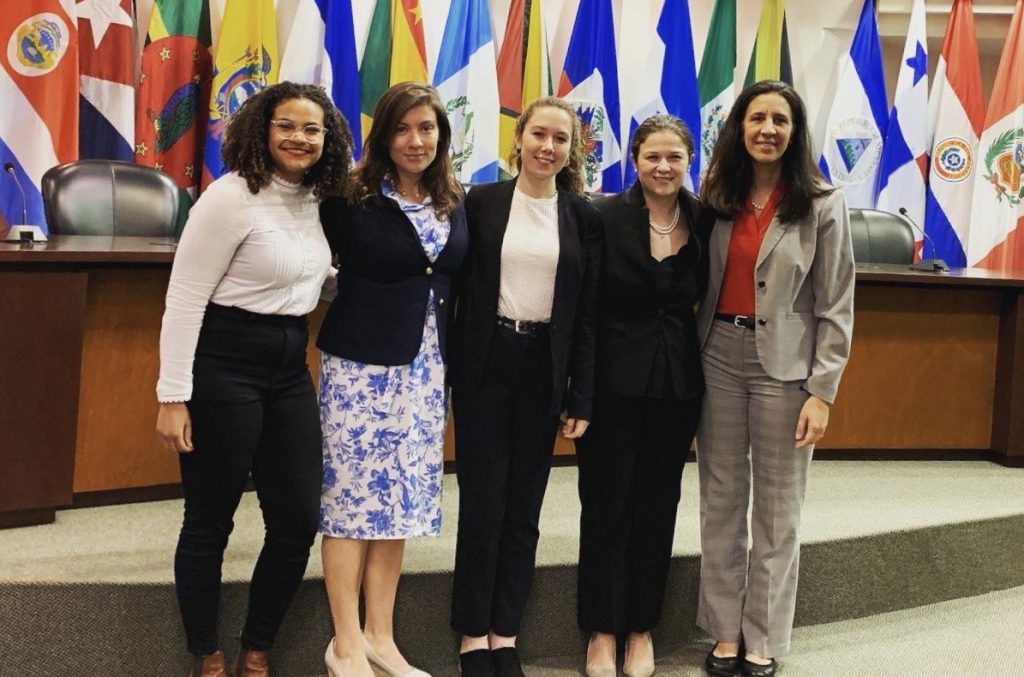On March 20, when the Inter-American Court of Human Rights (IACtHR) decided the merits of the case of Azul Rojas v. Perú, its decision was not only a victory for Azul Rojas Marín, a LGBTQI person who had been assaulted by police officers after being arrested for no reason. The court’s ruling—which stated that the Republic of Perú was internationally responsible for the violation of the rights to freedom and personal integrity, privacy, freedom from torture, judicial guarantees, and judicial protection—was also a triumph for BC Law Adjunct Professor Daniela Urosa, PhD, and her students Milena Cuadra Seas, a 2020 LLM candidate, and Liliana Mamani Condori, LLM ’19.
Together, with the support of Susan Simone Kang, director of Graduate Legal Education and International Programs, Urosa and her students had crafted an amicus brief for the IACtHR as part of an independent study of the court last semester.
“This was a very complex case,” said Urosa. With other groups homing in on such specific aspects of the case as the discrimination suffered by an LGBTQI individual, “we decided to focus on one point: the victimization that was suffered in that case,” said Urosa. Victimization in this sense, she explained, is a criminal concept referring to the psychological damage suffered by the victim of a crime during the investigation of that crime. The victim of sexual assault, for example, may be further traumatized during a police interrogation or examination.
While the IACtHR’s decision did not refer directly to the BC Law students’ amicus brief, it did pick up the brief’s recommendation that Peru approve protocols to apply to investigations involving victims of sexual assault, saving victimized persons from further trauma. “One of the main paragraphs is exactly what we wrote,” said Urosa.
The independent study proved to be such a success that Urosa, with the assistance of BC Law professors Judith McMorrow and Daniel Kanstroom, developed it into the International Human Rights practicum.
The practicum launched this spring with six students working on three cases. As part of the practicum (which will be offered next fall, as well), the group visited the IACtHR in Costa Rica in March, returning a few days before the pandemic virtually shut down international travel. (One of Urosa’s students, Marija Tesla, a joint JD and Fletcher (MALD) candidate, blogged about the experience in BC Law’s Impact blog. “What a wonderful experience for the students and for me too, to be in the court,” said Urosa. “To see how the courts work, to talk to the secretary of the courts, and the lawyers who work there.”
Photo: In the courtroom of the IACtHR during a March visit. From left to right: Students in the International Human Rights practicum this semester Nadia Bouquet, Julia Novak, Liadan Ni Nunain, and Marija Tesla with Professor Daniela Urosa.


